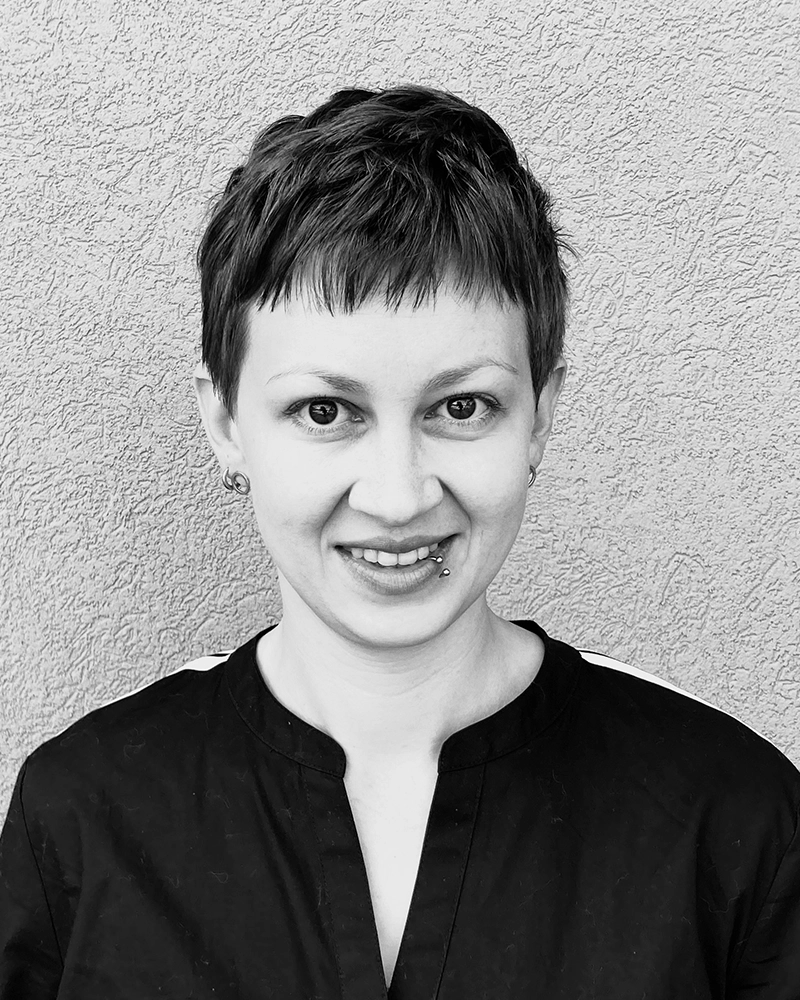
Dr. Katrin Antweiler
Remembrance as a Social Norm? Paradoxes of Collective Memory in a Postmigrant Society
The “promise of plural democracy”, as it is derived from the lessons of National Socialism, continuously produces new contradictions because the norm of equality for all that is enshrined in the German Basic Law, and the exclusion and disintegration experienced by many people, often do not coincide. Taking this dissonance as a starting point, my project – a multi-sited ethnography – examines civil society initiatives that have been offering educational programs on the Holocaust to people who have fled to Germany since 2015. Based on the assumption that Holocaust remembrance can both convey values of German society and, at the same time, exclude people from the “national culture”, I research current forms and functions of Holocaust education programs for refugees in order to better understand how paradoxes of plural democracy are negotiated on the basis of these mnemonic practices.
Research interests
- Memory Studies, especially Holocaust memory, memory of genocide, and multidirectional memory and global(ized) historical narratives, museum studies
- Contradiction Studies, primarily paradoxical cultural practices and cultural practices that aim at harmonizing supposed contradictions, e.g., through citizenship education
- Global Governmentality, especially with regards to decolonial and postcolonial critique, international relations and politics, security and securitization
Vita
- 2022
PhD from Justus-Liebig-University Giessen
Project: Memorialising the Holocaust in Human Rights Museums. A Comparative Analysis of Memory as a Means of Government. - 2017–2022
Full PhD Scholoarship from the International Graduate Center for the Study of Culture (GCSC). - 2021
Junior Fellowship at the Center for Holocaust Studies at the Institute for Contemporary History, Munich. - 2018–2022
Co-Speaker of the GCSC’s Research Area 1: Cultural Memory Studies. - 2019
DAAD doctoral research scholarship. - 2017
Member of the Memory Studies Association and its working group Critical Thinking on Memory and Human Rights. - 2016–2017
Research Track Stipend from Humboldt Graduate School. - 2013–2016
M.A. Cultural Studies, Humboldt-University Berlin, Germany. - 2009–2013
B.A. Cultural Research and Gender Studies, University of Bremen, Germany.
Publications
Monograph
- Memorialing the Holocaust in Human Rights Museums, 2023. Berlin: De Gruyter
Articles (peer-reviewed)
- Why collective memory can never be pluriversal: A case for contradiction and abolitionist thinking in memory studies. In: Memory Studies 16(6), 2023, pp 1529-1545. https://journals.sagepub.com/doi/10.1177/17506980231202337
- Memory as a means of governmentality. In: Memory Studies, 2023. Accessible at:
https://doi.org/10.1177/17506980221150892 - The coloniality of Holocaust memorialization in post-apartheid South Africa. In: International Affairs, Volume 98, Issue 1, January 2022, Pages 263–280. Accessible at: https://doi.org/10.1093/ia/iiab205
- Unlearning Prejudice Through Memory? Contemporary German Memory Politics and Human Rights Education. In: AUC Studia Territorialia (2/2019), 55-79. Accessible at: https://doi.org/10.14712/23363231.2020.4
Publications without peer review
- Gefühlsabfrage am Smartphone. Wie eine Museumsapp den Link zwischen Holocaust und Menschenrechten herstellt. In: Quellen zur Geschichte der Menschenrechte (herausgegeben vom Arbeitskreis QGM). https://www.geschichte-menschenrechte.de/fundstuecke/gefuehlsabfrage-am-smartphone
Reviews
- “Efforts in Futurity beyond Reconciliation” [review of: Chavez, Y./Mithlo, N. M. (Hg.). Visualizing Genocide. Indigenous Interventions in Art, Archives, and Museums]. In: International Affairs 99(6), 2023, pp. 2522-23 https://doi.org/10.1093/ia/iiad265.
- Erinnerungskultur im Spannungsfeld zwischen universellen und partikularen Perspektiven [Review on: Natan Sznaider, Fluchtpunkte der Erinnerung. Über Gegenwart von Holocaust und Kolonialismus. Berlin, Hanser Literaturverlage 2022]. In: Einsicht 2022. Bulletin des Fritz Bauer Instituts.
- Prescribed Anti-Racism? Historic and Contemporary Challenges to a Global Memory Imperative [Review on: Gilbert, S./ Alba, A.: Holocaust Memory and Racism in the Postwar World]. In: KULT_online 61 (2020).
- At the Limits of Transformation? Human Rights Education Between Colonial Conditions and Emancipatory Counter-Projects [Review on: Zembylas, M.& Keet, A. (eds.): Critical Human Rights, Citizenship and Democracy Education, Entanglements and Regenerations. London: Bloomsbury, 2018]. In: KULT_online 57 (2019).
Talks, Workshops, and Events
- 2021
Organization of a panel on Memory and the Future for the (digital) annual conference of the Memory Studies Association. - 2020
Co-Organization of the international conference Memories for the Future? Narrating Horizons of Hope in Contemporary Politics out of History (held digitally at JLU Giessen).
Events with the RTG
- 01/16/2024
Internal, Talk: Memory and Morals in Transnational Constellations - 11/29/2023
Talk: Wenn Erinnerungspolitik zur Zukunftspolitik wird - 11/06/2023
Panel Discussion: Widersprüche der Erinnerungskultur. Die Realität der postmigrantischen Gesellschaft anerkennen? - 04/25/2023
Book Launch: Memorialising the Holocaust in Human Rights Museums - 01/24/2023
Internal, Talk: Rememberance as a Social Norm? Paradoxes of Collective Memory in a Post-Migrant Society